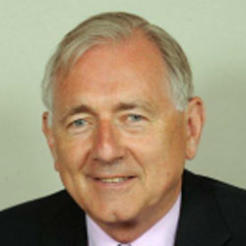Conservative MP Sir Peter Bottomley has slammed charities for spamming MPs with emails about their campaigns, saying the volume of daily messages MPs get from charities mean that important concerns from constituents get swamped.
Sir Peter was speaking at an All Party Parliamentary Group on Civil Society and Volunteering meeting on charities and their campaigning role, taking place as the House of Lords debated the controversial lobbying bill for the first time.
Commenting on the lobbying bill, which charities say will severely restrict their campaigning during election times, Sir Peter accused NCVO of having a “massive over-reaction to it”.
“Let’s put this into context,” he said. “I get 600 emails a day and the five or six desperate, personal problems from my constituents are swamped. The chances of missing things that matter increase each time a charity gets its supporters to email me.”
Sir Peter said when he received these types of emails from a charity, he would contact the charity chief executive to get them to explain why they think it’s a good way to get their issues across.
“Two out of three chief executives do not get back to me. I think Acevo and NCVO need to take some action on this.”
He said the organisations which caused the “most chaos” for him in his inbox, were Campaign for Marriage, the BA Executive Club and 38 Degrees.
“The BA director came into my office and left in tears when she heard from MPs how they wreck our work,” he said.
Sir Peter is a trustee of a number of well-known charities including the Church of England Children’s Society, Christian Aid, Nacro and Mind.
Steve Brine, Conservative MP for Winchester, also made a similar complaint to Sir Peter's at the meeting, noting he got 400 emails a day, many campaign-related.
He asked David Babbs, executive director at 38 Degrees, who spoke at the meeting, whether there were any data protection issues with its structure where it sends emails to its database of contacts, asking them to contact their MP about an issue.
'Chain of politics'
In response to the criticisms around charities, or their supporters emailing MPs about campaigns, James Legge, head of political at the Countryside Alliance, said it was “part of the chain of politics”.
“MPs don’t just vote on issues affecting their constituents, but on issues affecting people miles away from them. This is extremely important to remember.”
Earlier in the meeting, Legge had warned that there was a danger that charities were now seen as “a product of the Left, when they had originally been a product of the Right”.
He also warned that the lobbying bill was seeking to place restricts and controls on campaigns applying to people seeking power.
“This is very damaging," he said. "Charities are seeking influence, not power like political parties. There is a problem with something trying to discourage engagement and political process. It’s an attempt to discourage debate.”
Government determined to get bill through
Also speaking at the meeting, Elizabeth Chamberlain, policy manager at NCVO, said it had been “hearing loud and clear that government were determined to get the lobbying bill through in time for Royal Assent in January”.
She said the best thing would be for the bill to be paused, noting that despite assurances from the House, the body which would be regulating the law, the Electoral Commission, had said charity campaigning could be easily caught by the new proposed lobbying laws.
When asked what amendments would be needed to the bill, she said further clarification was needed on the definition of controlled expenditure and activities within the scope of the legislation. She also said that more clarification would be needed on how constituency limits would be monitored and worked out in the bill.
And she added that the proposals in the bill on coalitions of charities campaigning needed to change. It is proposed that an organisation, campaigning within a coalition, will have to account for the expenditure of the coalition as a whole. “This is double accounting,” she said. “It will make charities fearful of entering coalitions. Having to just account for your own expenditure will make sense.”
Lord Richard Harris 'influential'
Towards the end of the meeting, Lord Best suggested that cross-bench peer Reverend Richard Harris was very influential amongst cross-bench peers and would be the most likely to get changes to the bill through.
“He meets with cross-benchers every week,” he said, “and will tell us what to do. I suggest you go through Richard Harris,” he said.
Lord Harris is the chair of the Commission on Civil Society, a coalition of civil society organisations set up to investigate the impact of the proposed legislation on civil society. It includes a broad range of organisations, including the Royal British Legion, the Women’s Institute, Countryside Alliance, Mumsnet and Acevo.
An Acevo spokesman said the Commission had been taking evidence over the past few weeks and would be releasing a report for Lords on the bill next Tuesday.
An NCVO spokesman said it would be speaking to Lord Harris, as a peer and in his capacity as the chair of the Commission on Civil Society.









